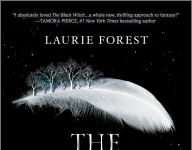In the intricate dance between language and influence, few novels capture the delicate balance as compellingly as Max Barry’s Lexicon.in this thought-provoking thriller, words become weapons and knowledge a formidable force, inviting readers to question the vrey nature of dialogue and control. This review delves into the layers of Lexicon, exploring how Barry unravels the mysteries of persuasion and power, weaving a narrative that is as intellectually stimulating as it is suspenseful. Join us as we navigate the labyrinth of language and examine the impact of this provocative work.
Exploring the Intriguing Concept of Word-Based Mind Control and Its Narrative Impact in Lexicon
![]()
Max Barry’s Lexicon introduces a interesting exploration into the power embedded within words, transforming language from a simple communication tool into an instrument of mind control. At its core, the novel posits that certain words, when wielded by skilled verbalist agents, can manipulate thoughts, emotions, and even actions with surgical precision. This imaginative premise challenges readers to reconsider the boundaries between language and agency, offering a narrative lens through which the potency of words is both celebrated and feared. The psychological depth achieved through this concept raises compelling questions about free will, influence, and the ethical dilemmas inherent in controlling the human psyche through linguistics.
The narrative impact is heightened by Barry’s deft weaving of tension and mystery, as characters navigate a world where vocabulary becomes a weapon. The interplay between knowledge and power unfolds in unpredictable ways,emphasizing how linguistic mastery correlates with dominance. Beneath the thrilling story lies a subtle commentary on persuasion, propaganda, and the mechanisms of control in society. Key elements driving this thematic exploration include:
Best-Selling Books in This Category
- The fluid definition of identity: how words shape and sometimes fracture the self.
- Ethical ambiguity: the moral costs of harnessing such power.
- Language as both shield and sword: a method of defence and an offensive tool.
| Aspect | Impact on Plot | Thematic Significance |
|---|---|---|
| Word Mastery | Drives character conflict and alliances | Explores control vs. freedom |
| Memory Manipulation | Shapes narrative twists and revelations | Questions reliability of perception |
| Secret Societies | Creates a shadowy, tense atmosphere | Highlights power structures behind language |
A Deep Dive into Max Barry’s Skillful World-Building and How It Shapes Reader immersion
![]()
Max Barry masterfully constructs a universe where language is not merely a tool for communication but a weapon wielded with precision and subtext.His world-building goes beyond conventional boundaries by intricately intertwining vocabulary and power dynamics, allowing readers to feel the weight of every word spoken, every phrase constructed. The environments crafted in Lexicon breathe and pulse with tension, where the commonplaces of schools and cities hide hidden factions and secretive societies that operate under the veil of ordinary life.
What sets Barry apart is his meticulous layering of details that invite readers to actively piece together the mechanics of his universe. Key elements contributing to immersion include:
- Complex linguistic codes that govern characters’ interactions;
- Intricately designed organizations with their own rituals and hierarchies;
- Engaging moral ambiguity, blurring lines between heroes and antagonists;
- Juxtaposition of everyday settings with extraordinary undercurrents.
| World-Building Element | Impact on Reader Immersion |
|---|---|
| Language as power | Deepens engagement through intellectual intrigue |
| Ordinary Settings | Grounds fantastical elements in reality |
| Shadowy Organizations | Adds layers of mystery and suspense |
| Multifaceted Characters | Encourages empathy and complex understanding |
Balancing Thrilling Plot Twists with Intellectual Themes Without Sacrificing Pacing or Engagement
![]()
Lexicon masterfully juggles high-octane plot twists with profound intellectual themes, creating a storytelling experience that is as thought-provoking as it is indeed pulse-pounding. Barry does not rely solely on shock value; instead, he layers his narrative with a meticulous exploration of language’s power, making every twist resonate with meaningful implications.Each revelation feels earned, contributing not just to the plot mechanics but also to the broader meditations on communication, control, and identity. The novel’s pacing remains brisk, propelled by well-timed suspense rather than rushed exposition, ensuring readers are constantly engaged without feeling overwhelmed.
The balance is further enhanced by carefully structured narrative components that seamlessly weave tension and intellect. Below is a fast breakdown of how these elements coalesce:
- Thrilling Twists: Unexpected turns that challenge character motivations and reader assumptions.
- Intellectual Themes: Deep dives into linguistic philosophy and psychological manipulation.
- Consistent Pacing: Steady progression that keeps momentum without sacrificing depth.
- Engagement Techniques: Complex characters whose evolving dilemmas invite reflection.
| Element | Contribution |
|---|---|
| Plot twists | Maintain suspense and drive curiosity |
| intellectual Themes | Encourage deeper understanding and reflection |
| Pacing | Ensure smooth narrative flow |
| Engagement | Build emotional investment in characters |
The Complex Interplay Between Language, Power, and Identity Explored Through Character Development
![]()
Max Barry’s Lexicon deftly illustrates how language is far from a mere tool of communication-it is a conduit of power, intricately woven into the fabric of personal and social identity. Through the evolution of its characters, the novel reveals how words can shape reality, manipulate perception, and assert control. the protagonists’ journeys underscore a potent truth: mastery over language translates to mastery over influence. As each character uncovers the secret language, their transformations are not just external but deeply internal, challenging their sense of self and allegiance.Barry uses this interplay to question whether language defines identity or if identity ultimately governs the use of language, blurring boundaries with exhilarating complexity.
The novel’s exploration of linguistic power is further enhanced by its portrayal of alliances and conflicts formed through or against language manipulation. consider the following elements, which punctuate the narrative and reflect key dimensions of this theme:
- Secrecy and revelation: How undisclosed words act as both weapons and shields.
- Resistance and Submission: Characters’ varied responses to linguistic domination.
- Transformation and Deconstruction: The ongoing redefinition of identity through language shifts.
| Character | Language Power | Identity Conflict |
|---|---|---|
| Emily | Unlocks emotional vulnerabilities | Balancing empathy and control |
| Wil | Defies linguistic norms | Struggles with trust and loyalty |
| Prospero | Imposes authority via words | Obsessed with dominance |
Analyzing the Ethical questions Raised by Manipulative Language Use Within the Story’s Context
Max Barry’s lexicon challenges readers to confront the unsettling reality of language as not merely a tool for communication but as a potent weapon capable of modifying thoughts, beliefs, and actions. Within the story’s fabric,the intentional manipulation of language unveils deep ethical quandaries: Is it ever justifiable to strip away free will under the guise of persuasion? How do we balance the power of words with the sanctity of individual autonomy? These questions resonate strongly in a world increasingly shaped by advertising,political rhetoric,and digital echo chambers,where the boundary between influence and exploitation is often blurred.
Further complicating the ethical landscape is the stratification of power among those who possess the skill to manipulate language versus those who do not. barry subtly invites us to examine this imbalance through a conceptual lens, as demonstrated in the table below:
| Aspect | Manipulators’ Advantages | Potential Harms |
|---|---|---|
| Control over Narrative | Shape beliefs and outcomes instantly | Suppress dissenting voices and truths |
| Emotional Influence | Elicit desired reactions effectively | Exploit vulnerabilities and cause trauma |
| Access to Knowledge | Gatekeep crucial details | Enable elitism and social division |
- Consent: The novel probes the erosion of consent when words become coercive forces, questioning what consent even means when the mind itself is vulnerable.
- accountability: who is responsible when manipulation causes harm-the speaker,the listener,or society at large?
- Boundaries of free Speech: The story blurs lines between freedom of expression and hazardous mind control,urging reflection on current regulatory frameworks.
Ultimately, Barry’s narrative does more than entertain; it serves as a mirror reflecting our own ethical dilemmas surrounding language power. It compels readers to ask whether mastery over words should be democratized,regulated,or perhaps feared,an inquiry that lingers long after the final page is turned.
Stylistic Choices and Narrative Techniques that Enhance the Unfolding Mystery and Suspense
Barry masterfully intertwines multiple narrative threads,shifting seamlessly between characters and timelines. This fragmented storytelling mimics a puzzle,enticing readers to piece together information alongside the protagonists. The prose itself is deliberately paced, with sharp, concise sentences that heighten tension and create a palpable atmosphere of urgency.Dialogues are laden with double meanings,while descriptive passages frequently enough linger just long enough to cast shadows of doubt without revealing too much. Such stylistic decisions immerse the reader in an intricate web where every word seems charged with significance, reinforcing the novel’s central theme of language as both weapon and key.
The novel also employs a rich palette of literary devices that amplify the suspense. As an example,the use of foreshadowing appears subtly through cryptic references and symbolism,planting seeds of unease that only bloom fully much later. Repetitive motifs, such as recurring codes or specific phrases, serve as breadcrumbs across chapters, guiding yet obscuring the path forward. The following table illustrates how these techniques interplay to sustain intrigue throughout the narrative:
| Technique | Effect | Example |
|---|---|---|
| Fragmented Timeline | Creates narrative puzzle | Shifting between past and present |
| Foreshadowing | Builds suspense | Cryptic early dialogue hints |
| motif Repetition | Reinforces thematic threads | Recurrent code words |
Comparing Lexicon’s Unique Approach to Psychological Thrillers and Speculative Fiction Tropes
Max Barry’s Lexicon deftly subverts traditional psychological thriller conventions by embedding the battle of minds within a framework of linguistic power. Instead of relying on the usual motifs of paranoia and suspense, Barry thrusts language-the very tool of thought and communication-into the spotlight as both weapon and vulnerability. The narrative skillfully explores how words can manipulate cognition, uncovering a world where vocabulary isn’t just descriptive but coercive. Unlike many thrillers where external threats dominate, here the danger lies hidden in the intangible, challenging readers to question the boundaries between language, identity, and control.
Concurrently, Lexicon innovatively engages with speculative fiction tropes by blending them with psychological tension in a seamless manner. Rather than using futuristic technology or overt supernatural elements, Barry’s speculative twist is grounded in linguistic theory taken to extremes-turning the written and spoken word into a means of psychological domination. This approach cultivates a fresh hybridity, exemplified in the following comparison of common trope elements and Barry’s unique interpretations:
| Trope Element | Typical Usage | Lexicon‘s Twist |
|---|---|---|
| Mind Control | Advanced tech or psychic powers | Language as an innate mental weapon |
| Secret Organizations | Classic shadowy cabals | Elite linguists decoding cognition |
| Threat Source | External villains or catastrophe | Internal psychological and linguistic battles |
- Language as Power: Words shape reality and agency, blurring lines between influence and coercion.
- Psychological Depth: Characters’ internal conflicts mirror the external struggle with language’s reach.
- Hybrid Genre: A smart marriage of thriller suspense with speculative linguistic exploration.
Suggestions for Readers Who enjoy Thought-Provoking Plots Blended with Fast-Paced action
If you found yourself captivated by the intricate dance of language and power in Lexicon, there’s a wealth of books that expertly weave sharp intellectual puzzles with pulse-racing action. titles like “the Rook” by Daniel O’Malley deliver a similar blend of mind-bending mystery and brisk pacing, all set against a backdrop of secret societies and supernatural intrigue. Meanwhile, “Vicious” by V.E.Schwab offers a dynamic exploration of morality and heroism through characters whose superhuman abilities create as many ethical dilemmas as explosive showdowns.
For those thirsting for narratives that challenge the mind while pushing characters to their limits, these selections balance cerebral plots with kinetic energy:
- “The First Fifteen Lives of Harry august” by Claire North – A cyclical thriller about repeating lifetimes and shifting destinies.
- “Red Rising” by Pierce Brown – A revolutionary saga charged with political intrigue and relentless action.
- “Dark Matter” by Blake Crouch – A mind-bending sci-fi chase through alternate realities and identity.
- “Neverwhere” by Neil gaiman – Urban fantasy filled with imaginative danger and layered storytelling.
| Book | Why It Resonates | Notable Trait |
|---|---|---|
| the Rook | Mystery intertwined with supernatural espionage. | Wicked wit |
| Vicious | Explores the fine line between heroism and villainy. | Dark, fast-paced |
| Dark Matter | Questions reality in a gripping sci-fi pursuit. | Twist-heavy |
insights on How Lexicon Challenges Conventional Ideas About Communication and Influence
Lexicon disrupts the traditional boundaries of communication by presenting language not just as a tool for expression but as a potent instrument of control.Barry crafts a universe where words possess intrinsic power, capable of bending wills and shaping realities.This radical proposition prompts readers to reconsider the efficacy of everyday language and the subtle psychological mechanics behind influence. Through a mix of suspense and linguistic theory, the narrative invites us to question whether persuasion is an art manipulated through careful vocabularies or innate human intuition gone awry.
One of the novel’s most compelling aspects is how it deconstructs the mechanics of influence through the concept of “trigger words”-terms that elicit involuntary responses in listeners.This is cleverly reflected in the following simplified overview, which encapsulates key elements of this fictional linguistic power:
| Element | Function in Lexicon | Impact on Communication |
|---|---|---|
| Trigger Words | Activate subconscious compliance | Override rational defenses |
| Word Identification | Classify individuals’ susceptibility | Personalize influence tactics |
| Language Conditioning | Alters perception of reality | Shapes behavior preemptively |
By presenting language as a double-edged sword-both a means of connection and domination-Barry pushes readers to reflect on the ethical dimensions of communication strategies in our own world.Whether through subtle persuasion or overt manipulation, Lexicon poses a critical question: to what extent are we shaped by the words we hear, and how much autonomy do we truly wield in conversations framed by hidden linguistic forces?
Evaluating the Appeal of Lexicon for Fans of Linguistic puzzles and Psychological Drama
For aficionados of linguistic puzzles, Lexicon presents a unique playground where words wield power in their purest form. Barry’s inventive exploration of language as a weapon transforms everyday vocabulary into a cryptic code waiting to be cracked. The novel’s central concept-that uttering specific words can bend emotions and influence actions-offers a refreshing challenge for readers who delight in deciphering hidden meanings and unraveling complex wordplay. This cerebral approach is balanced by a narrative pace that keeps the intellectual curiosity sharp without sacrificing storytelling momentum.
Meanwhile, fans of psychological drama will find themselves immersed in a labyrinth of trust, manipulation, and identity. The characters are masterfully crafted with layers of ambiguity that compel continuous reassessment of their motives. Themes of control and vulnerability weave through the plot, inviting readers to ponder the intricacies of human interaction under extreme circumstances. Below is a snapshot of key elements that resonate notably well with lovers of these genres:
| Aspect | Appeal to Linguistic Puzzle Fans | Appeal to Psychological Drama Fans |
|---|---|---|
| Word Power Concept | Engages analytical skills through cryptic language | Highlights psychological manipulation |
| Character Complexity | Encourages decoding hidden cues | Explores deep emotional conflicts |
| plot Structure | Puzzle-like twists and reveals | Tense emotional dynamics and betrayals |
| Thematic Depth | Investigates language as influence | Examines power and control in relationships |
Final thoughts on the Book’s Lasting Impact and Its Place in Contemporary Thriller Literature
Max Barry’s Lexicon quietly carves a niche within contemporary thriller literature by daring to blend linguistic theory with high-stakes espionage. Its layered narrative challenges the conventional boundaries of the genre, pushing readers to reconsider not only what a thriller can be but also how language fundamentally shapes human interaction and power dynamics. This book does not just entertain; it provokes thought about the invisible forces that govern communication and manipulation, establishing its lasting impact beyond typical narrative thrills.
What sets Lexicon apart is its deft use of language as both a weapon and a shield, reflected in elements that continue to resonate with readers and critics alike:
- Innovative premise: Using words as instruments of control introduces a fresh lens to the spy thriller genre.
- Complex characters: Protagonists and antagonists blur the lines between victim and perpetrator, deepening the narrative’s psychological texture.
- Philosophical undercurrents: Themes of identity, free will, and morality invite ongoing debate long after the last page is turned.
| Aspect | Contemporary Thriller Norm | Lexicon‘s Approach |
|---|---|---|
| Use of language | Dialogue-driven | Language as a power mechanism |
| Character development | Clear hero/villain roles | Ambiguous, layered personas |
| Thematic depth | primarily action-focused | Philosophical and linguistic exploration |
Recommendations for Readers interested in Exploring the power of Words in Fictional Worlds
For enthusiasts drawn to the intricate dance between language and influence,Lexicon opens a gateway to exploring how words shape reality in fictional realms.If Barry’s portrayal of verbal magic captivates you, consider diving into works where language functions as a potent force, whether as a tool of control or liberation. Authors such as Ursula K. Le Guin and China Miéville craft worlds steeped in linguistic mysteries that echo the cerebral thrill found in Lexicon. Their narratives challenge readers to think beyond mere dialogue, highlighting language as a vessel of power and identity.
Exploring the theme further, the following recommendations stand out for their insightful portrayal of words wielding influence:
- Ursula K. le Guin’s A Wizard of Earthsea – a masterclass in spellcasting bound to the precision of language.
- China Miéville’s Perdido Street Station – blending linguistic invention with urban fantasy turmoil.
- Patrick Rothfuss’s The Name of the Wind – where names and words define magical prowess and destiny.
- Margaret Atwood’s Oryx and Crake – exploring linguistic control and societal collapse.
| Book | Author | key Linguistic element | Why It Resonates |
|---|---|---|---|
| A Wizard of Earthsea | Ursula K. Le Guin | True Names | Language as the core of magical identity |
| Perdido Street Station | China Miéville | Invented Tongues | Language building a surreal urban landscape |
| The Name of the Wind | Patrick Rothfuss | Naming Magic | The power of words tied to identity and fate |
| Oryx and Crake | Margaret atwood | Linguistic Manipulation | Language shaping societal power dynamics |
A Brief Look at Max Barry’s Career Highlights and His Signature Narrative Style
Max Barry’s journey through the literary world is marked by a distinct blend of sharp wit, incisive social commentary, and innovative storytelling. Beginning with his debut novel, Syrup, Barry established a knack for satirizing corporate culture and consumerism, weaving humor seamlessly with critique. Over time, his work evolved to embrace more speculative elements, culminating in masterpieces like Jennifer Government and Lexicon. His career highlights consistently showcase an author unafraid to question societal norms while engaging readers through fast-paced narratives and thought-provoking scenarios.
Barry’s signature narrative style thrives on intricate plotting and a unique linguistic playfulness that challenges readers to question the power of words themselves. His prose often oscillates between razor-sharp dialogue and vivid descriptions, creating a dynamic flow that mirrors the thematic tension in his stories. This approach is reflected in Lexicon, where language is both a weapon and a wonder. Below is a simple breakdown of key elements that define his style:
- Satirical undertones: Utilizing humor to expose societal flaws.
- Speculative fiction: Melding reality with imaginative concepts.
- Dynamic pacing: fast-moving plots that maintain tension.
- Language-centric themes: Exploring communication as power.
Lexicon stands as a provocative exploration of language’s power-its ability to shape reality, manipulate minds, and unravel truths. Max Barry’s intricate narrative invites readers to ponder just how words wield influence,for better or worse,leaving us both captivated and contemplative. whether you journey through its pages as a fan of gripping thrillers or as a seeker of ideas, Lexicon offers a compelling reminder: language is never just words-it is the force that molds who we are.











